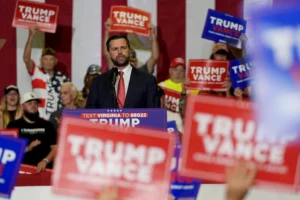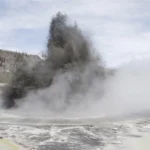To Launch a New Digital Dollar, Wyoming Must Clear a Host of Hurdles
State to begin search for staff, experts to assist with new ‘stable token’
- Published In: Politics
- Last Updated: May 09, 2023

WThe Wyoming Stable Token Commission met for the first time on Monday afternoon in Cheyenne to explore what’s needed to launch a digital version of the U.S. dollar. (Courtesy photo via Zoom)
By CJ Baker
Special to the Wyoming Truth
This story was updated for clarity as of noon MT on May 9, 2023.
By launching its own digital version of the U.S. dollar, the State of Wyoming could help lower the cost of processing payments, offer an alternative to a central bank digital currency from the federal reserve and potentially make a lot of money, state leaders were told Monday.

“There’s a lot of work to be done here,” Gov. Mark Gordon remarked at the inaugural meeting of the Wyoming Stable Token Commission.
The commission — composed of the governor, State Treasurer Curt Meier, Auditor Kristi Racines and four yet-to-be-named experts — was created by the Wyoming Legislature as part of the state’s embrace of blockchain technology and cryptocurrencies.
Gordon allowed the Wyoming Stable Token Act to become law in March, but expressed concern that lawmakers hadn’t given enough thought to the intricacies of setting up the cryptocurrency. He also worried that a botched launch would damage the state’s reputation as a crypto pioneer — a concern echoed by multiple commenters on Monday.
“While this is an incredibly exciting piece of legislation in that it could extend the dollar into the crypto space in ways that it should be, it’s also a very risky piece of legislation if it’s mishandled,” blockchain entrepreneur Charles Hoskinson told the commission. “And there’s many challenges to it.”
However, Hoskinson, the founder of the Cardano blockchain, Ethereum co-founder and Wheatland bison rancher, also indicated the project has big potential. He noted there are over $100 billion worth of stablecoins — digital assets designed to represent the U.S. dollar — circulating on blockchains; they’re used to trade in other cryptocurrencies like bitcoin, engage in so-called decentralized finance (DeFi) and make financial transactions.
A stablecoin called USDT currently dominates the market, and Hoskinson said the company that issues the coin, Tether, makes roughly $2.4 billion a year. However, the issuer has been dogged by questions about what’s actually backing up its digital dollars.
“This is a pretty substantial affair as an industry,” Hoskinson said of stablecoins, “and at the moment, there’s no one as credible as the state of Wyoming to issue some things.”
The state would back each of its digital tokens with a dollar held in the real world, transparently investing the cash in highly liquid treasury bills while keeping the profits as revenue.
Federal interference?

A Cheyenne-based company called American CryptoFed DAO hopes to persuade major merchants to use Wyoming’s stable token to process some of their trillions of dollars of annual payments, as blockchain technology can theoretically offer faster, cheaper and more secure transactions. If the token is widely adopted, “it can create revenue streams like Wyoming’s never dreamed of,” American CryptoFed Organizer Scott Moeller told the commission. He also described the state’s token as a “wonderful alternative” to a more restrictive central bank digital currency (CBDC) issued by the Fed.
Meier expressed interest, suggesting stable token payments could have a fraction of the costs of credit card transactions while avoiding the industry’s efforts to track firearm-related purchases.
“I think if we get over that hump, then we can certainly do things like make sure that all sporting goods purchases are [just] sporting goods purchases,” he said.
That hump involves not only finding experts for the commission, but hiring a consultant and executive director and procuring contractors to create and launch the token. The commission will face a host of decisions, such as whether to make the token available to the general public (which can bring regulatory implications), how to market it and which cryptocurrency exchanges and blockchains to work with.
In conjunction with the Wyoming Attorney General’s Office, the commission must also determine whether the law allows the state to issue the tokens, with a report due by Nov. 1.
What the federal government will make of the state’s plans is unknown. The Federal Reserve initially seemed receptive when the state chartered crypto-friendly banks known as Special Purpose Depository Institutions (SPDIs), but it’s since taken a dimmer view amid a broader crypto crackdown. Wyoming is currently battling the Fed in court over the issue.
“It is quite clear, this is new and different,” Gordon said of the stable token. “It’s also quite clear that our federal friends may not look as favorably on it as we would like.”
He added, “I don’t want them to be the Lucy to our Charlie Brown on this.”
A more mundane federal hurdle could stem from a requirement that each commissioner undergo an FBI background check, as it’s unclear whether the bureau is willing to perform them. An answer might not come for months “and they have been difficult lately,” declining some requests, said Betsy Anderson, the governor’s general counsel.
Given the various questions, Racines suggested “the timing may be a little off” to open a search for an executive director.
“… That could be, ‘Yeah, we’d like you to come work for us, but it may be illegal,’” Racines quipped, to laughter.
Doing it right

With the act calling for some urgency, Gordon said he’d like to have a director on board by July. The commission also intends to draft a conflict of interest policy to avoid situations where an expert might write and approve a request for proposals, then become a bidder.
Sen. Chris Rothfuss (D-Laramie) said the intent is to have the token be “open source” and “technology neutral,” so multiple blockchain organizations can partner with the state. And he predicted the commission will find plenty of help.
“If you need 20 people on a Zoom call on a specific technical topic in this space, you’ll get 20 people on the Zoom call, and every last one of them will provide valuable information,” Rothfuss said. “So there will be no shortage of willing, competent, amazing participants available to you.”
He also suggested the state’s efforts could ultimately help the entire crypto industry, which he said is being treated unfairly by federal regulators.
Hoskinson noted U.S. regulations are just one area the state needs to consider, as cryptocurrencies can be almost instantaneously transmitted across the globe 24 hours a day, seven days a week.
“For example, what do we do if these tokens end up in the hands of a country that’s sanctioned, like Russia or Iran? What party is responsible for freezing accounts, reversing accounts, these types of things?” Hoskinson asked. He noted all of the restrictions must be programmed into a token before it’s issued.
The legislation says the commission must “endeavor” to issue its first stable token by the end of the year, but both Hoskinson and Steve Lupien, the director of the University of Wyoming’s Center for Blockchain and Digital Innovation, suggested the panel consider starting with a small pilot program.
“The world will be watching this,” Lupien said, “and I think making sure that we do it right is probably more important than just doing it quickly.”













